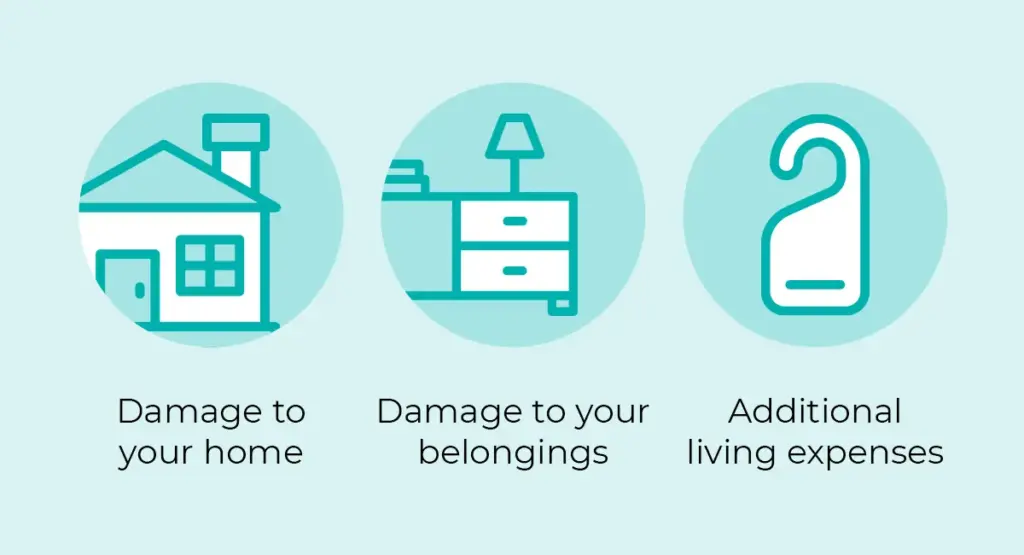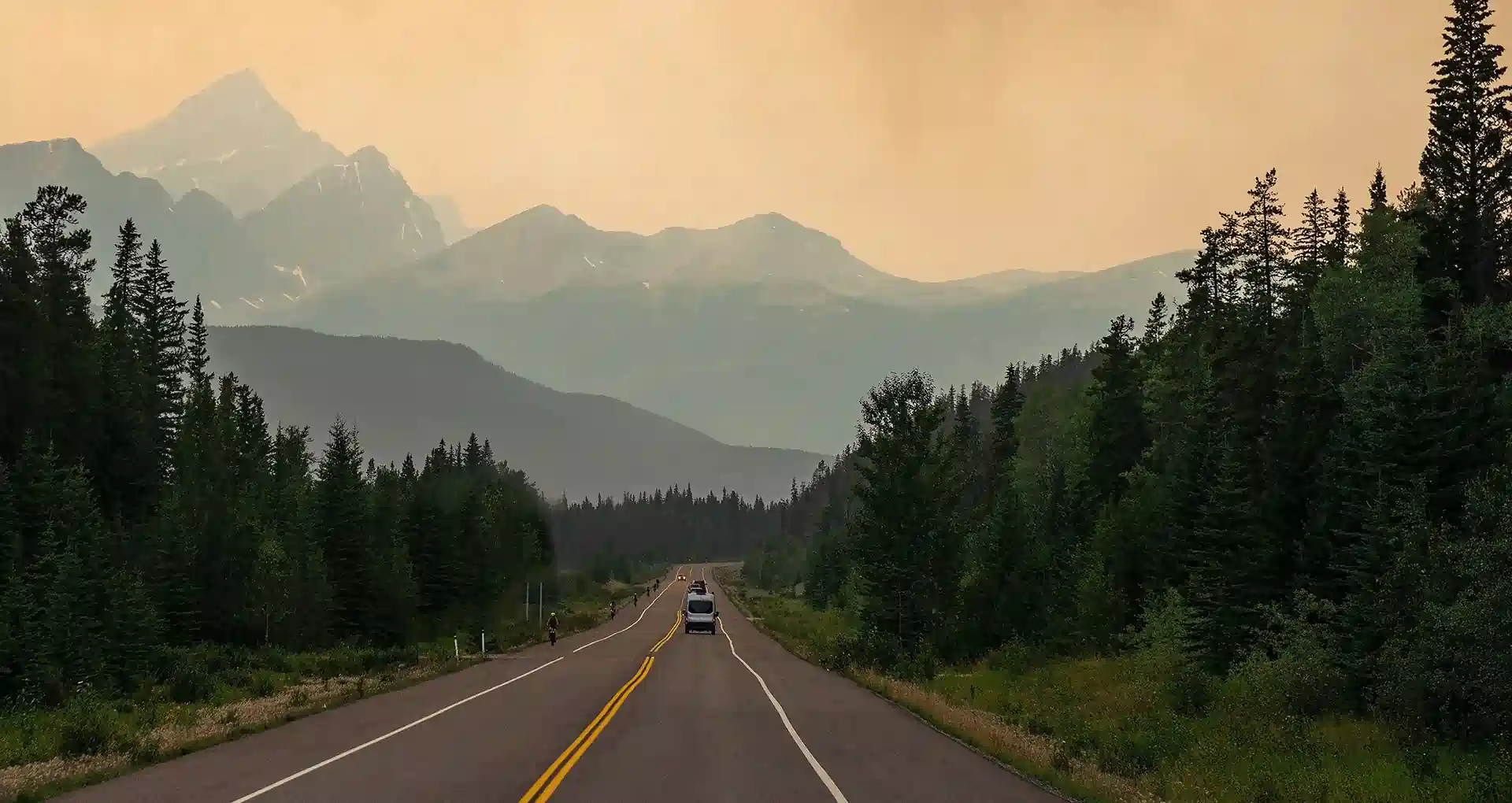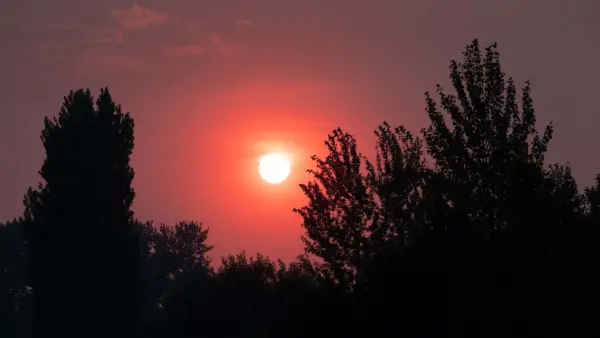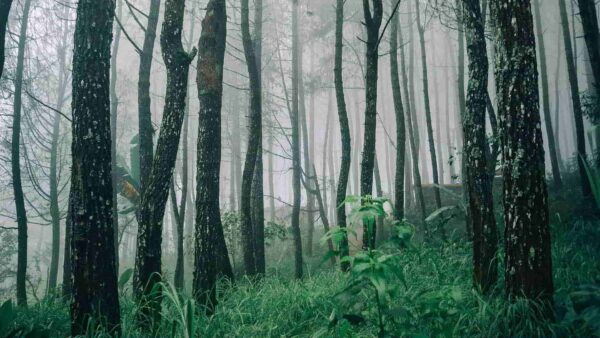2023 was Canada’s worst wildfire season on record, with over 15 million hectares of land burned. Early spring’s precipitation (or lack thereof) is usually a strong indicator of the season’s wildfire severity, so what’s it looking like for 2024?
Experts are indicating that the 2024 wildfire season could be just as bad or even worse than 2023’s. While it isn’t quite clear what impact that will have across Canada, here’s what you need to know about the potential impacts of wildfire on your insurance.
Does home insurance cover wildfire damage?

Home insurance plays a significant role in wildfire disaster recovery.. Most, if not all, standard home insurance policies provide coverage for wildfire including:
- Coverage for the physical damage done to your home, any insured outbuildings, landscaping, fittings and fixtures, etc.
- Coverage for physical damage or loss to your personal belongings, including furniture, clothing, electronics, appliances, etc.
- Coverage for additional living expenses incurred if you are forced out of your home due to an insured wildfire loss
It’s important to note that if you live in an area currently experiencing an active wildfire, you’ll likely have difficulty finding an insurance company that’s willing to sell you a new policy or increase the limits on your current coverage due to the imminent threat. Once the risk has passed and your home is no longer in an active wildfire zone, you should be able to purchase coverage again.
As the climate changes, insurance could become progressively pricier
With wildfires and other severe weather events causing more insurance claims across Canada, rates are being impacted. What if the cost of home insurance goes up even more?
When policyholders pay their premiums, a significant portion goes into a “payout pool.” That payout pool is the money that insurers pull from when paying out claims. This means that when there are more losses, such as those that would be caused by a massive wildfire, your insurance provider ends up paying more from that pool. Insurance companies need to ensure they always have enough funds to cover claims, so they raise premiums for all insured homeowners to buffer against future catastrophic losses. So even if your home hasn’t been damaged by wildfire, you may see your rates increase because other homes in your area – or even in your province – have. This can be extremely frustrating for homeowners who have never made a claim, but see their rates increase regardless. Moreover, this can be devastating for homeowners who may not be able to afford the same comprehensive coverage they had prior. Many homeowners are required to carry home insurance by their mortgage lender, so going without coverage isn’t an option.
Will insurance rates keep rising?
Although home insurance rates are likely to rise in the coming years due to an anticipated increase in extreme weather, Canada is nowhere near the catastrophic situation the United States is currently seeing. State Farm, one of the U.S.’s major insurers, is no longer offering new insurance policies in the state of California due to the high risk of wildfires.
Wildfires are certainly prevalent across Canada, but there isn’t any indication that providers will move away from insuring areas that are wildfire prone.
What can homeowners do in the face of wildfire risk this season?
Review your coverage with an insurance broker. This is always highly recommended regardless of the season, and even more so with the predictions about how this summer’s wildfires will dwarf those experienced last year. Ensure that your policy is sufficient in covering the entire replacement cost of your home.
If your home has been damaged or lost due to wildfire, start your insurance claim as soon as possible to get a quicker settlement. All you need to do to start the process is call your provider to notify them of the loss. During the claims process, you’ll need to provide information about the damage to your home to ensure you get your full and fair settlement (this includes finding proof of ownership, documenting damages, etc.). Once any evacuation orders have been lifted and your home is deemed safe to re-renter, adjusters may also come out to look at your property and begin the process.
Wildfire is always covered because fire is an insured peril on all property insurance policies. Unless you started the fire yourself, it will be covered – and that even applies to wildfires that are manmade/started by human error. Note, however, that if your car was also damaged in the fire, it may not be covered unless you have comprehensive coverage.
Expect delays in communications with your insurance provider following a catastrophic loss that has impacted a widespread area. Insurance companies are likely to deploy resources from all over to help with large-volume losses, but it may still take some time to process your claim due to the sheer number of policyholders impacted.
Concerned about wildfire or not having adequate insurance? Mitch’s insurance brokers can help review your policy when you need it. Give us a call.
Looking for home insurance?
Speak with a Mitch Insurance broker today to get a quote on home insurance in Ontario.
Call now
1-800-731-2228







